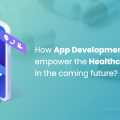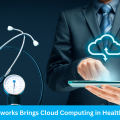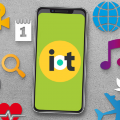The Role of Mobile Healthcare Apps in Redefining the Future of the Healthcare Industry!
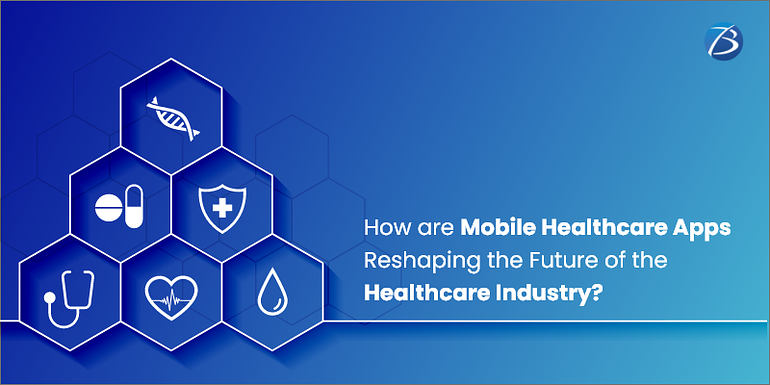
The concept of healthcare digitalization is not new! The healthcare industry had started replacing traditional methodologies with advanced software and emerging digital trends for a long time. Lately, the adoption of the “mobile health” approach has accelerated this ongoing transformation phase and has paved way for myriad novel opportunities in healthcare. The term mHealth or mobile healthcare has gained traction over the past couple of years and is expected to disrupt the entire healthcare system in the near future. mHealth apps have proved their prowess during the Covid19 pandemic by offering exceptional remote healthcare services.
The adoption rate of mHealth applications is rising in leaps and bounds. Take a look at these interesting stats on the mHealth app industry. According to the renowned market research portal Fact.MR, “mHealth app sales generated revenue of 36.7 Billion USD in the year 2021. During the period of 2022-2032, the sales of medical apps are expected to rise at a CAGR of 14.3%. The report also stated that the healthcare apps segment is going to turn into the highest revenue generation category in the coming years. ”
Let’s explore the revolutionary power of mobile healthcare and its potential to define the future of the healthcare sector.
Mobile Healthcare Technology and its Importance
Mobile health or mHealth technology is the practice of delivering patient care and public health services using mobile communication devices and wireless technology. Generally, devices like smartphones, wearables, PDAs (Personal Digital Assistants), tablets, patient monitors, communications satellites, etc. are utilized to facilitate healthcare, medical information collection & storage, and medical research.
mHealth technology has emerged as a sub-category of eHealth, the yesteryear trend in healthcare, and has been successful in entirely digitalizing medical operations. mHealth apps collect the clinical health data of patients as well as community medical data in real-time. This data is then shared across authorized users - patients, doctors, and research scholars.
Mobile health applications help in carrying out activities like monitoring patients’ vital signs in real-time, remote diagnoses & treatment, telemedicine services, collecting remote data, tracking epidemic outbreaks, creating custom meal plans/ workout regimes, training/collaboration of medical workers, etc.
Key Factors driving the growth of mHealth Industry?
Extensive Smartphone & Internet Usage
The adoption rate of smartphones and the internet is skyrocketing and so, there’s been a rapid surge in the usage of mobile apps. Even consumers living in remote locations enjoy access to these facilities. As such, today, consumers expect a smartphone app for every product and service they need. mHealth apps have made it possible to access healthcare services with a few finger clicks on their smartphone regardless of the location.
Chronic Disease Management
Patients with chronic diseases require regular health check-ups and their health vitals need to be monitored frequently. mHealth apps ease out this task as patients’ vitals can be remotely monitored using wearables like smartwatches, smart bands, smart glasses, etc.
Emerging technologies
The utilization of emerging technologies like IoT, artificial intelligence, blockchain, machine learning, chatbots, and big data in healthcare have enabled mobile healthcare app developers to tailor apps with unimaginable capabilities. For instance, AI gathers meaningful insights from humongous data and facilitates medical analysis and clinical decision-making. ML algorithms yield precise and accurate outcomes when interacting with training data. This helps doctors gain handy insights into patient treatment methodologies. AI/ML technologies also prove highly beneficial in detecting cancer symptoms well in advance, assisting radiology functions, and even helping patients fight depression.
A new technology called DTx (Digital therapeutics) is being introduced into the healthcare industry landscape. DTx is clinically examined software that uses evidence-based technologies for enhancing patient outcomes. This technology delivers healthcare interventions to patients directly. So, if digital therapy tools are integrated into a mobile app, it will contribute immensely to treating patients, managing chronic medical conditions, and preventing the occurrence of diseases. DTx is expected to solve the problem of self-medication whenever individuals are unable to pay a visit to the doctor. This technology is expected to become the buzzword in healthcare in the near future.
Down the line, in the next few years, medical app development is expected to gift us with game-changing solutions for biopharmaceutical development, rare disease treatment/management, and cloud-powered solutions for digital drug discovery.
Advantages of mHealth Applications
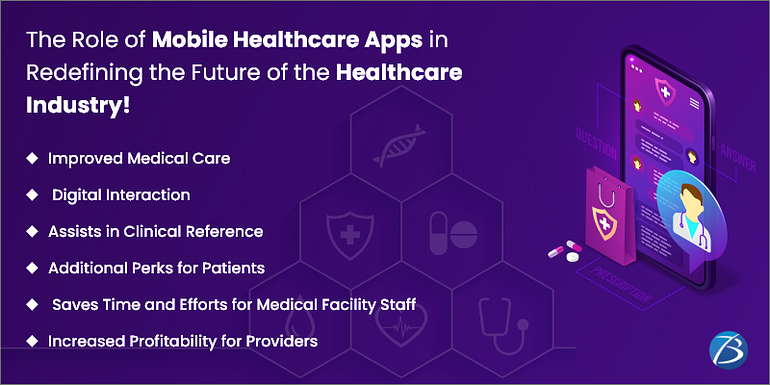
Improved Medical Care
Healthcare mobile apps have empowered practitioners to provide better and more efficient care. Today, mobile apps have become an inseparable part of medical providers. These apps help practitioners to prescribe medication, view imaging & lab reports and also track patients’ recovery in real-time.
mHealth apps enable doctors to offer virtual diagnoses and treatment from any location, at any time. Moreover, healthcare diagnoses are much faster with minimal chances of errors. Furthermore, doctors and medical professionals receive timely notifications on their personal devices in case of emergencies along with all relevant information and hence it becomes possible to deliver prompt care during such situations.
Digital Interaction: A convenient Option for Patients
Using mobile apps, users can find and book an appointment with the desired practitioner with just a few clicks on their mobile devices, arrange for doctor consultations via video conferencing, and make payments using an integrated payment gateway.
The most popular feature of mHealth apps is digital doctor visits. Patients can reap the benefits of this function for receiving doctor consultations and also clarify queries related to generic healthcare and medication. Modern mHealth apps offer functionality that instantly translates queries into the language preferred by the patient, thereby resolving the possibility of language barriers.
Virtual healthcare interaction proves immensely advantageous to busy individuals, the elderly, and people residing in remote areas without any hospitals nearby as they can receive healthcare services with a few taps on their smartphones.
Assists in Clinical Reference
mHealth apps simplify the hassle-prone task of searching for clinical references as users can view the required information in the app itself. Such an app will allow users to digitally access the major reference documents concerning clinical references including ICD-9, ICD-10, and E&M Coding.
Additional Perks for Patients
Mobile healthcare app development comes with numerous additional perks for patients which were unthinkable in yesteryears. Today, patients using mHealth apps can maintain a digital wellness diary; receive the latest information on vaccines and drugs; view healthcare-related reviews and news digests; get reminders for medication, follow-ups, etc. Patients enjoy easier methods of appointment booking, maintain a diet & calorie control regime, and even can create a personal account linking it to their EMR (Electronic Medical Record).
Saves Time and Efforts for Medical Facility Staff
Owners of hospitals and private clinics can get a custom app developed that can be integrated with a centralized database. Such an app will allow each doctor to view the medical data and lab test results of patients and also make a new addition to the system whenever needed. A custom health app will improve collaboration between healthcare facility staff, automate workflows, minimize the need for manual documentation, and provide precise information. This way, mobile healthcare app development saves time and efforts of medical professionals, improves efficiency, and reduces the chances of costly mistakes.
Increased Profitability for Providers
Healthcare mobile app development has offered innovative apps that improve patient-doctor communication. Also, patients’ trust in the healthcare provider increases as patients can actively participate in their treatment, communicate with health professionals and medics via text messages, receive notifications on follow-ups and ePrescription refills, access digital treatment records, and view test outcomes without having to visit the medical facility.
Thus, mHealth apps allow providers to provide elevated patient experiences, establish a brand name, attract a regular patient inflow, and strengthen their customer base, without having to invest a fortune in infrastructure or hiring medical staff. This results in improved ROI and exponential growth.
In Conclusion:
Mobile healthcare apps are becoming an inseparable component of the healthcare industry as more healthcare and pharmacy service providers are moving toward a technology-infused approach to delivering patient-centric services. The future of mHealth apps looks promising as advancements in AR, AI, and Cloud are expected soon. App development in healthcare in USA is undoubtedly a lucrative investment option for entrepreneurs.
However, developing flawless medical apps is no cakewalk and requires loads of experience and expertise. Therefore, it’ll be a good idea to seek professional help from an experienced healthcare mobile app development firm to craft an amazing mHealth app that will successfully address users’ pain points.
Other articles and publications:
Articles and publications of other companies:
- +1 (469) 277-0804
- 8305 Tripoli Trl, Frisco, TX 75034, United States
- www.biz4solutions.com/




